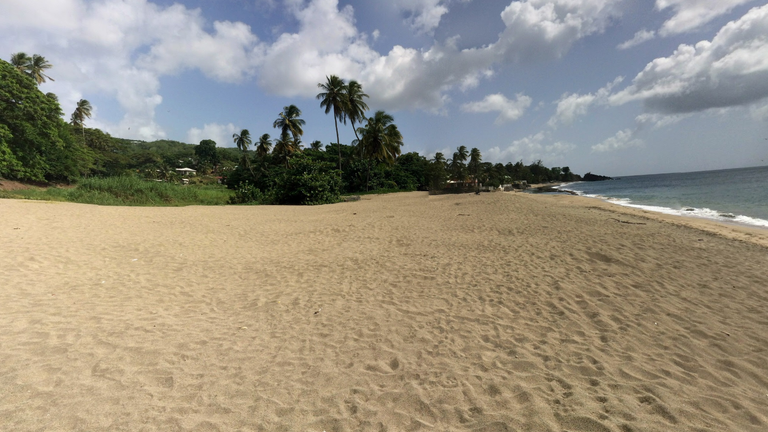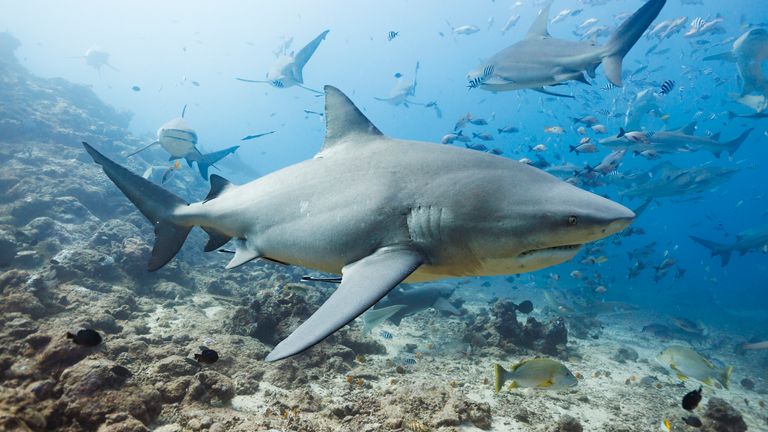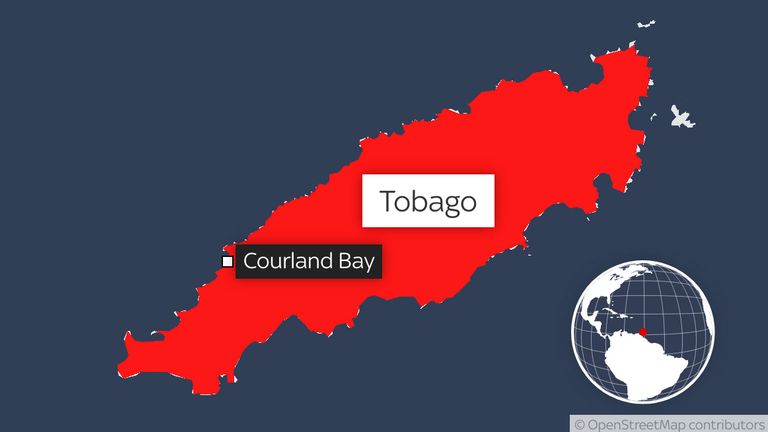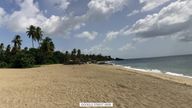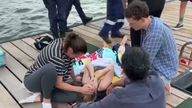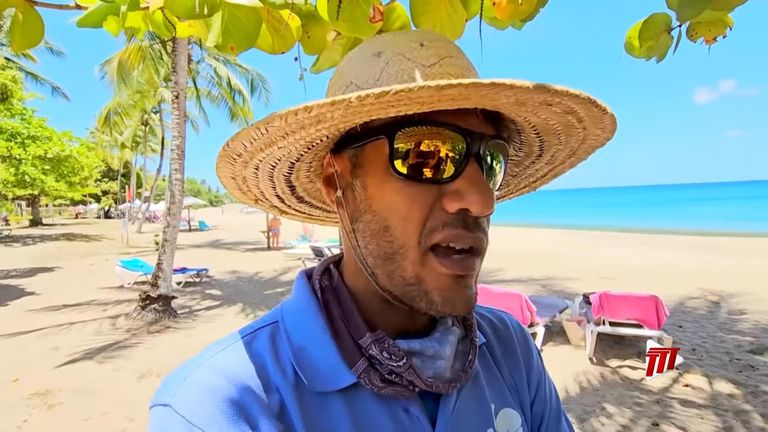British tourist attacked by shark in Trinidad and Tobago
Officials say beach closures will allow the coastguard and Department of Fisheries to investigate the incident and "neutralise the shark threat, if possible".
Saturday 27 April 2024 18:42, UK
A British tourist is in intensive care after being attacked by a shark in Trinidad and Tobago.
The incident on Friday, which occurred near the Starfish Resort in Courland Bay, prompted the government to shut seven beaches and a marine park along the northwestern coast of the Caribbean island.
The shark appeared to be a bull shark, according to the Tobago House of Assembly, and was 8-10ft long and 2ft wide.
Chief Secretary Farley Augustine said the victim was a 64-year-old British man, adding he was in a "stable" condition but had suffered severe injuries to his arm, thigh and stomach.
A local official named him as Peter Smith, from Berkhamsted in Hertfordshire.
"Some reattachments were done, of fingers for example, and hopefully that will save those fingers," Mr Augustine said in a news conference.
"We know that there's significant wounds on one of his legs that cannot be completely closed, but he will require extensive work.
"The task at this time for our health professionals is really to stabilise and ensure that we can save life and limb as much as possible."
A $10,000 (£8,000) bounty was initially offered to anyone who could capture the shark, but this was later retracted.
Stephanie Wright, a British tourist who saw the attack, said she noticed people gathering on the beach and thought they may have been aiding someone who had suffered a cardiac arrest.
"Then I saw a dorsal fin come out of the sea and I went: 'Oh my God, it's a shark'. And as it turned I saw the tail come out as well."
Orion Jakerov, watersports manager at the Starfish Resort, also witnessed the incident and said the man was about waist-deep in the water when the shark attacked.
He told local media the man and others near him in the water had their backs turned and did not see the shark approaching.
"The other people in the water were physically trying to fight the shark off while it attacked," he added.
In a statement the government said shark sightings were reported in the Grafton area and the Buccoo Reef Marine Park.
Be the first to get Breaking News
Install the Sky News app for free


Officials said the closures will allow the coastguard and Department of Fisheries to investigate the incident and "neutralise the shark threat, if possible".
A Foreign Office spokesperson said: "We are supporting the family of an injured British man in Tobago and are in contact with the local authorities."
Last year, there were 69 unprovoked attacks and 22 provoked bites worldwide, along with 14 fatalities, according to the Florida-based International Shark Attack File.
